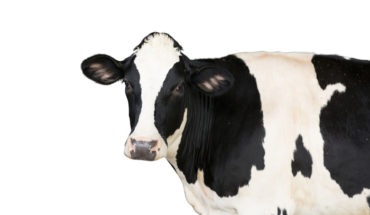TikTok food sellers may be risking people’s health, according to a new BBC investigation.
The Chartered Institute of Environmental Health (CIEH) says new revelations about TikTok users selling food without listing allergen information underlines the urgent need to future proof the UK food system against emerging threats and to protect lives.
A BBC investigation found that listings on social media app TikTok show people selling snacks and sweets without highlighting they contain one of 14 main allergens that UK businesses are legally required to declare.
When the BBC brought these listings to TikTok’s attention, it deleted them, however it is currently still possible to sell food on TikTok Shop without providing any ingredient or allergy information.
A major recent study by the Food Standards Agency (FSA) revealed that approximately 6% of the UK adult population, or around 2.4 million people, live with a clinically confirmed food allergy. Food allergies are a cause of particular concern in young children, where the incidence of food allergy (which is often life threatening) is estimated to be 5-8% in toddlers.
Around 10 people die from allergic reactions to food every year in the UK with hospital admissions for allergic reactions going up by 161.3% over the last 20 years. We have seen many high-profile cases of where wrong food allergen labelling or practice in food businesses has led to loss of life, showing just how critical it is that this information is provided and is accurate.
CIEH would echo calls from charities such as Anaphylaxis UK for allergy sufferers to be vigilant when buying food online – if the product they are buying does not contain ingredient and allergen information, do not buy it.
The growth of food being purchased online and via social media is a trend that is only likely to increase in the future and regardless of where firms are based or the type of kitchens in which they prepare their food, more needs to be done to protect people from harm.
CIEH is therefore calling on the Government to future-proof the UK’s food safety and integrity framework, ensuring it remains robust and adaptable. This should include introducing a ‘permit to trade’ for all registered food businesses to ensure a food business cannot open unless appropriate information has been provided and the necessary food safety measures and controls are in place.
Mark Elliott, President of CIEH, said:
“We know that food businesses not being open and clear about which allergens are in the food they are selling can lead to devastating and tragic consequences for consumers.
“This investigation by the BBC highlights a growing issue as more and more people buy food through apps with delivery-only kitchens (also known as Dark Kitchens) and directly from sellers on social media where adherence to UK food safety legislation may not be as robust as it should be.
“It is therefore critical that these emerging issues within the UK food system are tackled sooner rather than later to ensure it is future proofed to protect consumers and ensure no corners are cut by these new types of food businesses.
“It is extremely important that all new food business operators register the business with their local authority – they can do so here: https://register.food.gov.uk/new
“CIEH members across the UK play a vital role advising food business operators on food standards and legislation to ensure their compliance both for their benefit as reputable businesses and to keep their communities safe and well.
“However, the legislation they are advising on and enforcing needs to keep up with the ever-changing landscape of food businesses and sellers.”
- The race to solve solar energy’s recycling problem - 9th January 2026
- Most Brits use AI to self-diagnose health - 9th January 2026
- RAENG appoints pioneering Green Future Fellows - 9th January 2026






